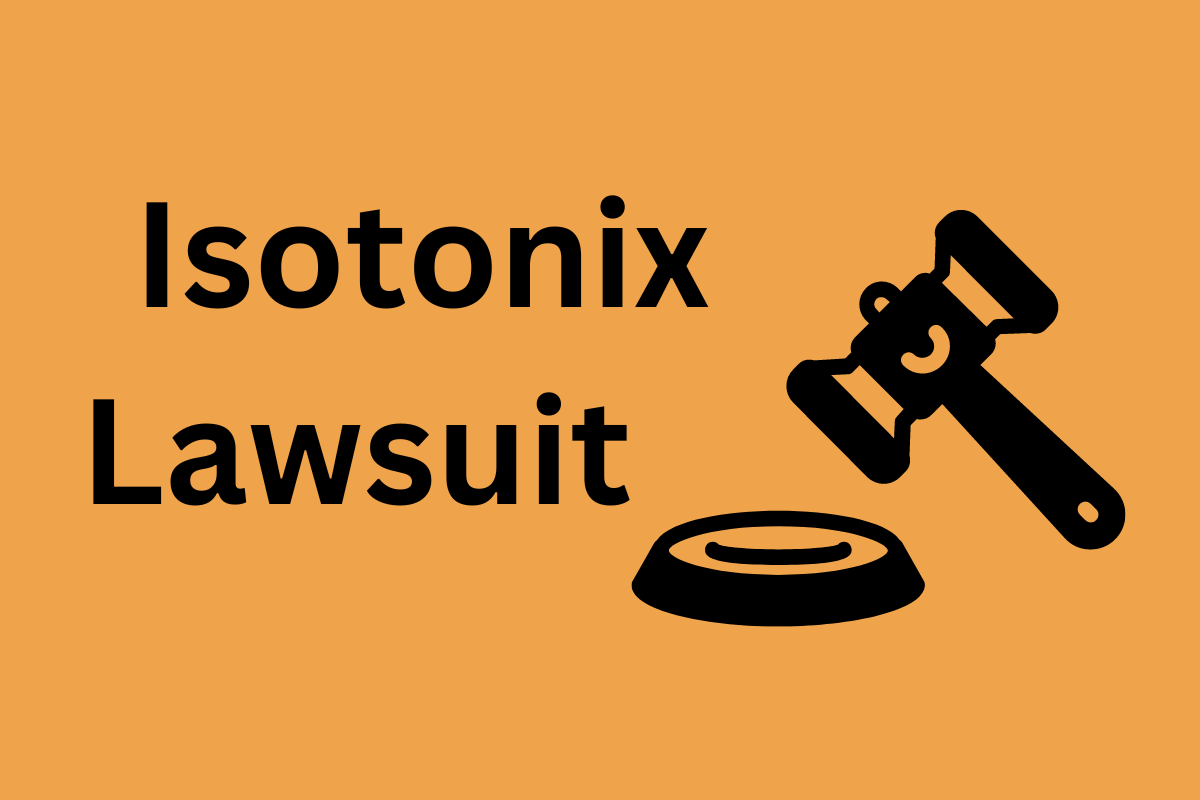The Isotonix lawsuit brand, marketed by Market America, has gained widespread attention due to its association with the wellness industry and its unique approach to supplementation through isotonic formulas. While the company touts the benefits of its scientifically formulated vitamins and supplements, it has also faced legal scrutiny over the years. This article delves into the details surrounding the Isotonix lawsuit, the allegations against Market America, and the broader implications for the multi-level marketing (MLM) industry.
Background of Isotonix and Market America
Isotonix is a line of health supplements created by Market America, a multi-level marketing company founded by JR Ridinger in 1992. The company’s business model allows independent distributors, known as “UnFranchise Owners,” to market and sell its products, with Isotonix being one of the flagship brands in its portfolio. Market America and its product lines, including Isotonix, claim to provide superior quality through their isotonic delivery system, which they argue increases absorption and effectiveness compared to traditional supplements.
The brand has gained a loyal following, thanks to its promise of providing optimal health benefits and better nutrient absorption through its isotonic formulas. Isotonix products are often touted as providing better bioavailability because their powdered form, mixed with water, creates a solution that closely mimics the body’s own fluids. This, in theory, allows for faster and more efficient absorption of nutrients.
However, despite these promises, Isotonix and Market America have faced multiple lawsuits and complaints over the years. These legal challenges have raised questions about the efficacy of their products, their business practices, and whether their marketing claims hold up under scientific scrutiny.
Allegations Against Isotonix and Market America
The Isotonix lawsuit stems from multiple allegations that accuse Market America of misleading consumers and engaging in deceptive business practices. These lawsuits have focused on a variety of issues, including false advertising, unsubstantiated health claims, and the nature of the company’s MLM structure. Below are the key allegations involved in the legal proceedings.
False Health Claims
Isotonix products are marketed with numerous health-related claims, such as boosting immune function, improving cognitive performance, and enhancing overall well-being. Plaintiffs in several lawsuits have accused Market America of exaggerating the benefits of Isotonix products, citing a lack of scientific evidence to support these claims.
For example, the company claims that its isotonic delivery system allows for superior absorption of nutrients compared to conventional supplements. However, critics argue that there is little to no credible scientific evidence that isotonic supplements are absorbed more efficiently or offer better health benefits than traditional pill-form vitamins.
One key aspect of the lawsuits involves the assertion that consumers were misled into believing they were purchasing superior health products, while in reality, the efficacy of Isotonix’s isotonic delivery system remains unproven. Additionally, some lawsuits allege that Isotonix products were falsely advertised as being capable of treating or preventing certain health conditions, which could be a violation of FDA regulations.
Deceptive Marketing Practices
Several lawsuits have also accused Market America of engaging in deceptive marketing tactics to attract both consumers and potential distributors. The lawsuits argue that the company’s marketing materials exaggerate the income potential for its UnFranchise Owners and that it misleads participants about the difficulty of making money through its MLM structure.
As with many MLM companies, Market America has been accused of using income projections and success stories to lure in new distributors. These cases suggest that while some individuals at the top of the pyramid may earn substantial incomes, the vast majority of distributors struggle to make any significant profit. Critics argue that Market America overstates the financial success of its distributors, creating a false sense of financial security for those who join the business.
Pyramid Scheme Allegations
Market America’s MLM structure has come under intense scrutiny, with several lawsuits accusing the company of operating a pyramid scheme. Pyramid schemes are illegal business models in which participants earn money primarily by recruiting others into the scheme, rather than selling actual products or services.
In the case of Market America, plaintiffs have alleged that the company places too much emphasis on recruitment rather than product sales, making it more akin to a pyramid scheme than a legitimate business. Critics argue that the company’s complex compensation plan incentivizes distributors to recruit more people into the business, rather than focus on selling Isotonix products to end consumers.
These lawsuits have pointed out that the majority of income earned by Market America’s top distributors comes from recruitment bonuses and commissions rather than from the sale of products. As a result, most people who join the company are unlikely to achieve the financial success that is promised by the company, leading to claims that the business model is unsustainable and exploitative.
Key Lawsuits Involving Isotonix and Market America
Over the years, several lawsuits have been filed against Market America regarding its Isotonix products and its business practices. These legal challenges have brought attention to the company’s marketing claims and its MLM structure.
Federal Trade Commission (FTC) Scrutiny
In 2017, Market America came under scrutiny by the Federal Trade Commission (FTC), which launched an investigation into the company’s business practices. Although the FTC did not explicitly label the company as a pyramid scheme, it raised concerns about the income claims made by Market America and its distributors.
The FTC’s investigation was part of a broader crackdown on MLM companies that make exaggerated income claims. In response, Market America agreed to update its income disclosures and improve transparency regarding the potential earnings of its UnFranchise Owners. This action, while not a lawsuit, highlighted the regulatory pressure facing the company and its business model.
Class-Action Lawsuits
Market America has faced multiple class-action lawsuits over the years, many of which focus on its MLM structure and the income potential of its distributors. In one notable case, plaintiffs accused Market America of operating a pyramid scheme and failing to provide adequate income disclosures to its distributors.
In these lawsuits, former distributors argue that they were misled into joining the company based on false promises of financial success. They claim that the vast majority of participants lose money in the MLM system, with only a small percentage of distributors earning significant incomes. These lawsuits have sought compensation for lost investments and damages related to the company’s misleading practices.
False Advertising Lawsuits
Market America has also faced lawsuits related to the marketing of its Isotonix products. Plaintiffs in these cases have accused the company of making false or misleading health claims about the benefits of its supplements. Some lawsuits have focused on the lack of scientific evidence supporting the company’s claims about isotonic delivery and nutrient absorption.
These false advertising lawsuits highlight the broader issue of unsubstantiated health claims in the supplement industry. Many companies, including Market America, face legal challenges over the way they market their products, particularly when those claims involve health benefits that are not backed by rigorous scientific research.
The MLM Industry: Controversies and Criticisms
The Isotonix lawsuits are part of a broader controversy surrounding the multi-level marketing (MLM) industry. MLMs, also known as network marketing or direct sales companies, rely on a structure in which independent distributors sell products and recruit others to join the business. Participants can earn commissions from their own sales as well as from the sales of those they recruit.
While MLM companies often defend their business models as legitimate, they have faced widespread criticism for their emphasis on recruitment and the financial challenges that most distributors face. Many MLM companies, including Market America, have been accused of operating pyramid schemes, where the focus is on recruiting new participants rather than selling products.
Challenges for MLM Distributors
One of the key criticisms of the MLM industry is that most distributors struggle to make money. Studies and reports have shown that the vast majority of MLM participants earn little to no income, with many losing money after accounting for expenses such as product purchases, training, and marketing materials. Critics argue that MLMs exploit people’s hopes for financial independence and often target vulnerable populations.
Market America has faced similar allegations, with former distributors claiming that the company’s compensation plan makes it difficult to earn a sustainable income. Many of the lawsuits against the company have highlighted the financial losses experienced by those who join the business, particularly those who are pressured into purchasing large quantities of Isotonix products to qualify for bonuses.
Regulatory Challenges
MLM companies are subject to regulatory scrutiny, particularly when it comes to income claims and business practices. The Federal Trade Commission (FTC) and other regulatory agencies have taken action against several MLM companies in recent years, focusing on deceptive marketing practices and pyramid scheme allegations.
Market America’s legal challenges reflect the broader regulatory concerns surrounding the MLM industry. As more consumers and regulators become aware of the risks associated with MLMs, companies like Market America may face increased legal and regulatory pressure to reform their business models.
Conclusion
The Isotonix lawsuit and the legal challenges faced by Market America underscore the ongoing controversies surrounding the MLM industry and the marketing of health supplements. While Isotonix products may have a loyal customer base, the company’s business practices have come under intense scrutiny, particularly with regard to its MLM structure and the claims made about its products.
For consumers and potential distributors, the legal proceedings serve as a cautionary tale about the risks associated with MLM companies and health supplements that make unsubstantiated claims. The lawsuits highlight the importance of thoroughly researching both the products being marketed and the business models being promoted before making any financial commitments.
As regulatory agencies continue to scrutinize MLM companies, it remains to be seen how the industry will evolve in response to these challenges. For now, the Isotonix lawsuit serves as a reminder of the potential pitfalls of the wellness and MLM industries.













+ There are no comments
Add yours